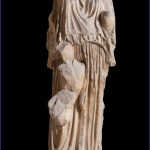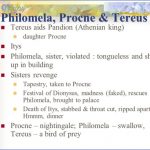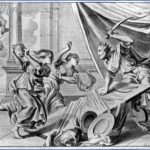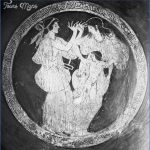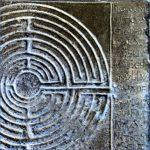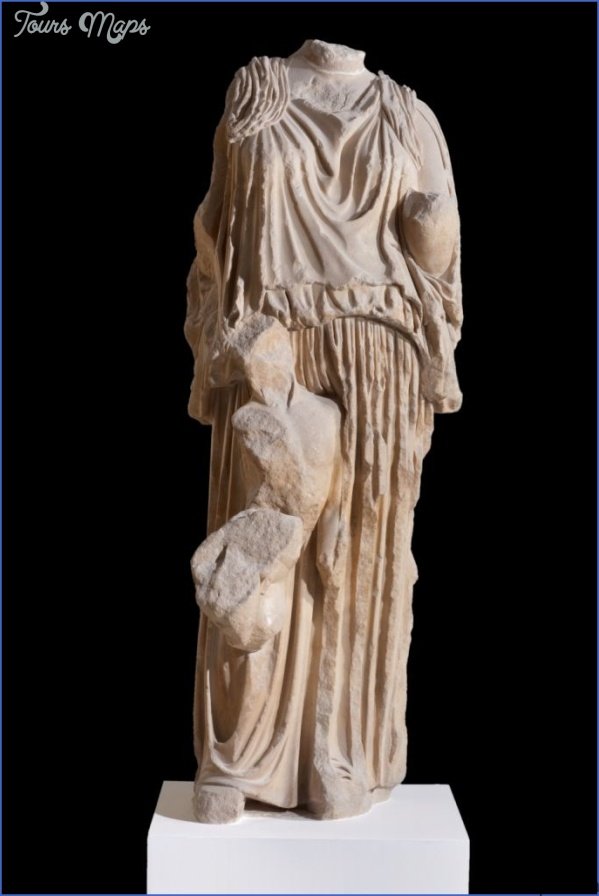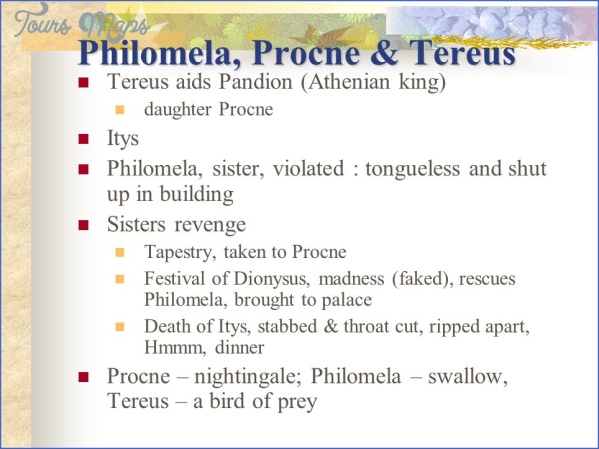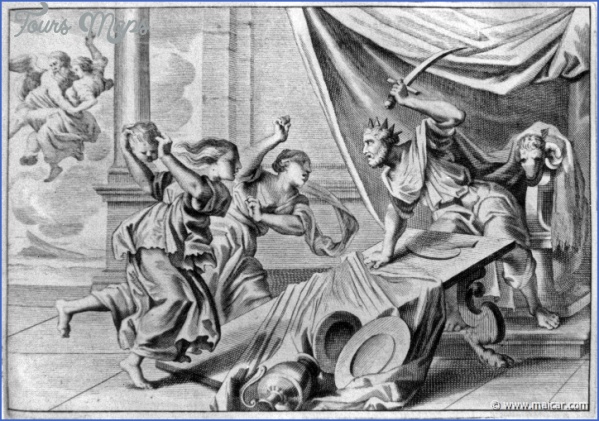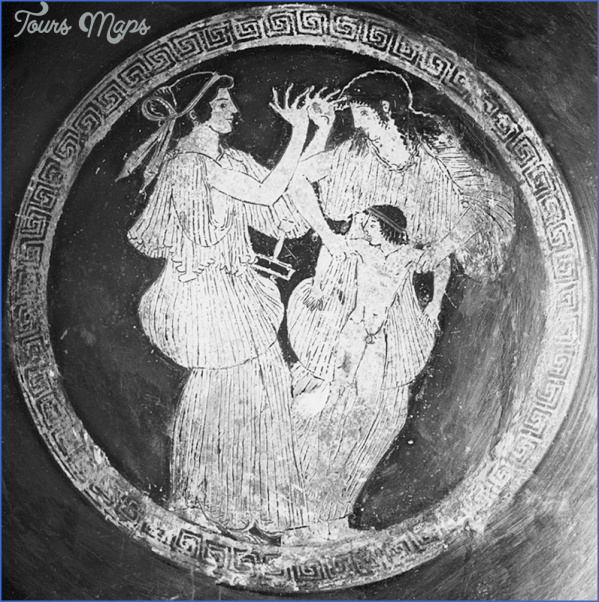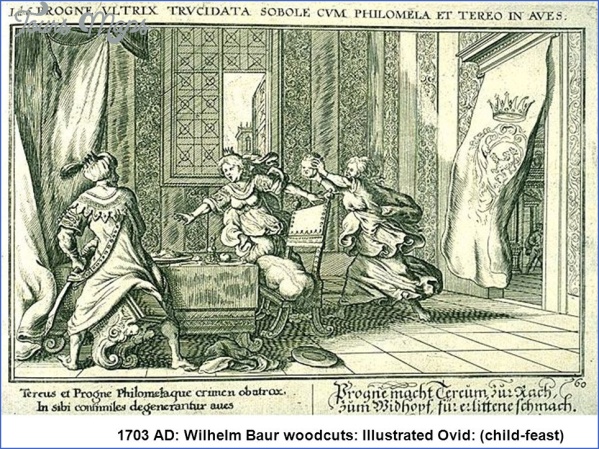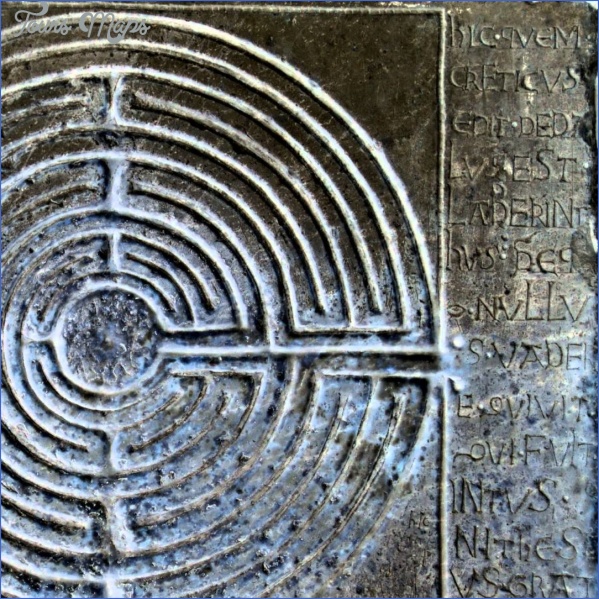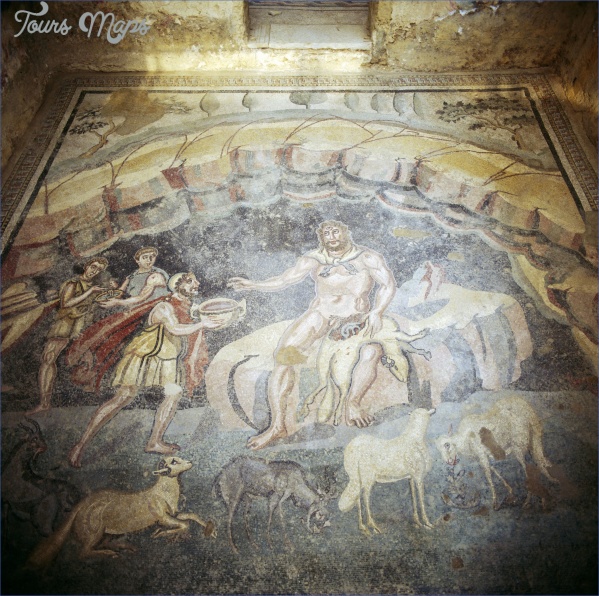Athenian mythology abounds with stories of wise kings, whose daughters met ugly or violent ends. Another was the kindly Pandion, who ruled after Erichthonius. He had two daughters, the elder of whom, Procne, he gave in marriage to King Tereus of Thrace. But when Procne’s sister, Philomela, went to visit her, the savage Tereus raped her and cut out her tongue. Unable to speak, poor Philomela wove a tapestry which revealed her bitter story. Procne understood, and in revenge she and Philomela killed, dismembered and cooked Tereus’ son, Itys, then served him to the king. The banquet finished, they brought in a covered platter, and revealed Itys’ head. Wielding an axe, Tereus pursued the sisters through the corridors until the gods intervened and turned all three protagonists into birds. Procne became a swallow, Philomela a sweet-voiced nightingale and Tereus a sharp-beaked hawk (or a hoopoe).
Pandion, Procne, Philomela & Erechtheus Photo Gallery
In Athens Pandion was succeeded by Erechtheus (semi-serpentine like Erichthonius), who was credited with founding many of the great Athenian civic festivals. In his reign a magical, protective olive-wood statue of Athene fell miraculously from the heavens. But, during a war with nearby Eleusis, Erechtheus received an oracle that Athens would win only if he sacrificed one of his three daughters. When he obeyed, the other two committed suicide. True to the prediction Erechtheus slew the Eleusinian king, but his glory was short-lived. His victim was Poseidon’s son, and the vengeful sea-god skewered Erechtheus with his trident. Despite its grisly nature, the tale was popular in Classical Athens, as a model of self-sacrifice for its citizens.
A similar message appears in the myth of Codrus, one of Athens’ last mythical kings. He discovered that invading Spartans believed that Athens would fall only if its king suffered no harm. So Codrus sacrificed himself:
He dressed as a beggar to deceive the enemy and, letting himself out of the city gates, began to collect firewood in front of the city. When two men approached from the enemy camp asking about conditions inside Athens, he killed one with his sickle. The other, thinking Codrus was a beggar, is said furiously to have drawn his sword and cut him down – at which the Athenians sent a negotiator to reveal the truth to the enemy and ask that their king be returned for burial.
The Peloponnesians gave back the body and left Attica, realizing that they no longer had any hope of taking it.
Maybe You Like Them Too
- Theseus & Peirithous
- The Voyage of the Argo Begins
- Minos, his Loves & his Family
- The Centaurs
- Athens in History & Today

